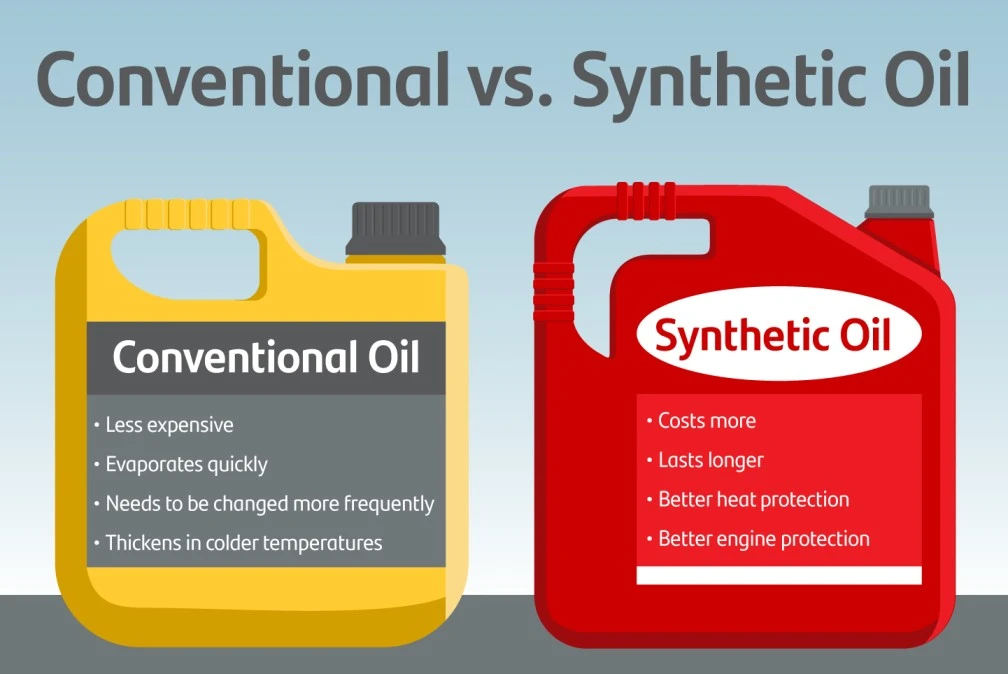Which one is right for your engine? Let’s break it down.
When it’s time for an oil change, you’ve probably heard the question:
“Do you want synthetic or conventional oil?”
If you’ve ever paused, unsure how to answer—or wondered if the extra cost is worth it—you’re not alone. Understanding the difference between synthetic and conventional motor oil can help you make the best choice for your vehicle, your driving habits, and your wallet.
Here’s everything you need to know.
What Is Conventional Oil?
Conventional oil (also called mineral oil) is derived directly from refined crude oil. It’s the traditional go-to for engine lubrication and has been used in vehicles for decades.
Key Features:
-
Lower cost per oil change
-
Works well in older engines
-
Offers basic protection and performance
However, conventional oil can break down faster under high heat or extreme conditions, which means you may need to change it more frequently.
What Is Synthetic Oil?
Synthetic oil is made from a refined base but engineered with specially designed molecules for higher performance. It’s manufactured to be purer and more stable, with additives that enhance engine protection, cleanliness, and efficiency.
Key Features:
-
Better protection at high and low temperatures
-
Resists breakdown longer than conventional oil
-
Helps improve fuel efficiency and engine performance
-
Keeps engines cleaner by reducing sludge and deposits
There’s also a synthetic blend, which combines both oil types to offer a middle ground in cost and performance.
Side-by-Side Comparison
| Feature | Conventional Oil | Synthetic Oil |
|---|---|---|
| Price | Lower | Higher |
| Oil Change Frequency | Every 3,000–5,000 miles | Every 7,500–10,000 miles |
| Performance in Cold/Heat | Average | Excellent |
| Engine Cleanliness | More buildup over time | Cleaner running engines |
| Engine Wear Protection | Basic | Advanced |
| Ideal For | Older vehicles, low-mileage | Newer engines, long drives |
Which One Is Right for Your Vehicle?
Choose conventional oil if:
-
You drive an older car with a simple engine
-
You stick to short, easy commutes
-
You’re looking for a budget-friendly option (and don’t mind more frequent oil changes)
Choose synthetic oil if:
-
You drive a newer car with a turbo or high-performance engine
-
You live in a region with extreme hot or cold temperatures
-
You do a lot of stop-and-go driving or long highway trips
-
You want longer intervals between oil changes
Our Recommendation
At Osborn Automotive, we typically recommend synthetic oil for modern engines, especially if you’re driving newer vehicles, commuting long distances, or just want to maximize your car’s health. That said, we’ll always inspect your engine and follow manufacturer recommendations to ensure the right choice for your specific vehicle.
